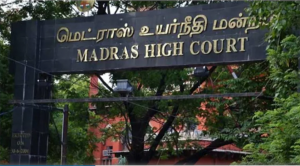 The Madras High Court in the case of Annalakshmi Stores vs. Deputy State Tax Officer vide W.P. NOS. 12371, 12390, 12392 & 12396 OF 2024 and W.M.P. NOS. 13501, 13505, 13507, 13508, 13511, 13513, 13518 & 13519 OF 2024 dated 10.06.2024, addressed the procedural lapses in the cancellation of GST registration and the assessment of tax liability. The Court found that the service of notices via a temporary ID did not meet the requirements of Section 169 of the CGST Act, 2017, as the petitioner did not have access to this ID. The tax liability was computed on a best judgment basis without giving the petitioner an opportunity to present their case, violating principles of natural justice. As a resolution, the Court set aside the impugned orders and notices, remanding the matter for reconsideration.
The Madras High Court in the case of Annalakshmi Stores vs. Deputy State Tax Officer vide W.P. NOS. 12371, 12390, 12392 & 12396 OF 2024 and W.M.P. NOS. 13501, 13505, 13507, 13508, 13511, 13513, 13518 & 13519 OF 2024 dated 10.06.2024, addressed the procedural lapses in the cancellation of GST registration and the assessment of tax liability. The Court found that the service of notices via a temporary ID did not meet the requirements of Section 169 of the CGST Act, 2017, as the petitioner did not have access to this ID. The tax liability was computed on a best judgment basis without giving the petitioner an opportunity to present their case, violating principles of natural justice. As a resolution, the Court set aside the impugned orders and notices, remanding the matter for reconsideration.
This judgment reinforces the importance of procedural compliance and the right to a fair hearing in tax assessment proceedings.
Facts of the Case:- In this case, the petitioner’s GST registration was retrospectively canceled from 31st August 2017 due to non-filing of returns for six consecutive months. The GST department issued show cause notices in Form GST ASMT-14, uploading them to a temporary ID which the petitioner claimed was inaccessible to them.
The petitioner argued that they were unaware of the notices and thus could not file returns or statutory appeals against the tax demands. Also, it was contended that the show cause notices were not properly served as they were uploaded to a temporary ID, which the petitioner did not have access to. The tax liability was computed on a best judgment basis using auto-populated data from GSTR-2A without giving the petitioner an opportunity to be heard or consider their objections.
Respondent’s submissions:- The temporary ID was accessible to the petitioner as the relevant password was sent to the registered email and mobile number. The petitioner’s contact details used for the temporary ID were from their original GST registration.
Court’s Decision:- The Court noted that the notice was uploaded to a temporary ID and not served in accordance with Section 169. Thus, it did not constitute proper service of notice. The assessment was done based on auto-populated data in GSTR-2A without the petitioner’s participation or consideration of their objections, which violates principles of natural justice. The petitioner was not given an opportunity to be heard, which is a fundamental requirement for fair assessment.
The Court set aside the impugned orders and notices due to non-compliance with the procedural requirements and principles of natural justice. The matter was remanded to the GST department for reconsideration, ensuring proper service of notice and allowing the petitioner an opportunity to be heard.
Legal Framework:-
Section 169 of the CGST Act, 2017: Specifies the methods of service of notice, including physical delivery, registered mail, email, or any other manner as prescribed.
Form GST ASMT-14: A show cause notice for assessment under the GST laws.
The complete judgment can be accessed at 2024 Taxo.online 1144


